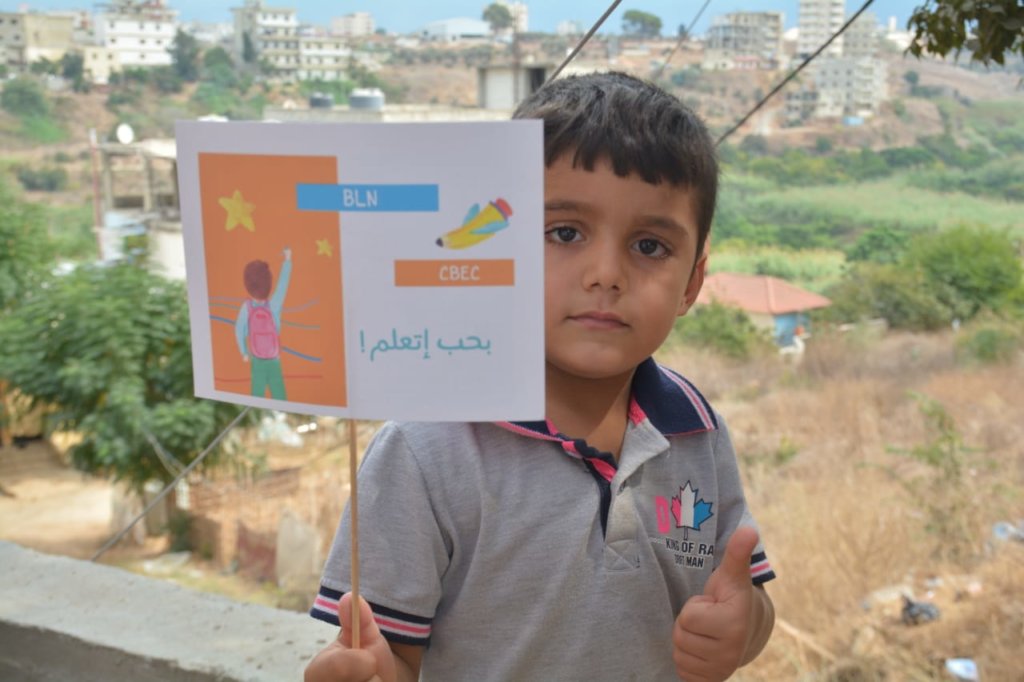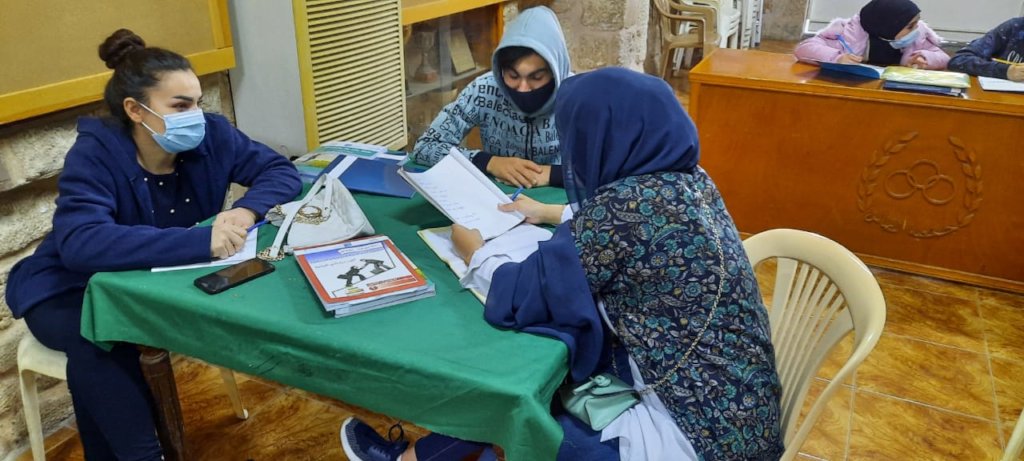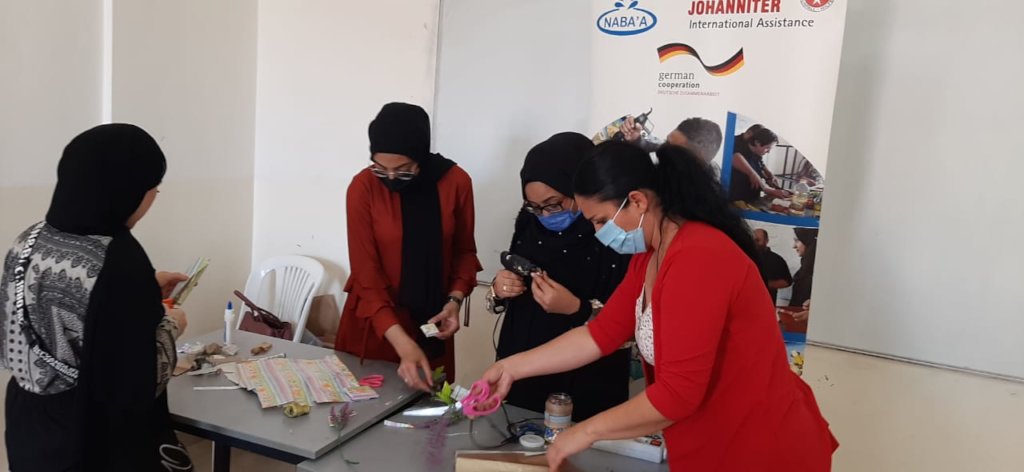By Hiba Hamzi | Program Coordinator
Background during and after the implementation of the project;
The tragic events of August 2020 in Lebanon, including the Beirut port explosion on August 4th and a new spike in COVID-19 cases, make this resource particularly relevant. These compound crises have weakened the education system even further. The Beirut blast led to at least 4 children killed, an estimated 1,000 children injured, and approximately 100,000 directly impacted. Widespread psychosocial trauma among children is already being reported, and damage and destruction to at least 163 public and private schools around the blast site will constrain education delivery for 85,000 affected learners for a long time to come. An additional 20 technical and vocational schools have also been impacted. The explosion comes in the wake of an unprecedented political and economic crisis: over the past year, the Lebanese pound lost 80% of its value, and starting in October 2019, spontaneous nationwide protests called for an end to the government’s crippling sectarianism and corruption that ultimately led the Prime Minister to resign later that month.
According to May 2020 estimates, 55% of the population lives in poverty, with an estimated 23% in extreme poverty; diminished economic activity from the port coupled with the economic stresses of COVID-19 are likely to exacerbate the situation. This has left an estimated 300,000 people homeless and rendered an estimated 70,000 jobless, further exacerbating both the risk of COVID-19 transmission as people relocate and the economic challenges the population faces. Economic pressures on children to engage in the workforce, already a challenge before recent events, may intensify as families combat deepening poverty.
Naba’a Achievements; During the last period, The most highlighted achievements during the last period;
Nabaa’ educational team is going beyond delivering the content within the learning process, since they provide a linguistic support as they lay emphasis on providing meaningful feedback for all students for an improvement. As they keep in contact with the parents as a kind of following-up and coming up with recommendation to enhance the learning process and making distance learning work. Nabaa’ is strengthening the correlation among educational team, students and parents as well for a better result.
Teachers started to adapt, cope and learn an applicable learning methodologies with regard to distance learning in order to refine a continuous level in serving students with stressing on ensuring that every student will get an opportunity to participate and express throughout the virtual classroom in addition to support parents in technological skills. Since greeting all students with their names played a vital role in enhancing students’ engagement and commitment as they stated to feel that they belong to the classroom no matter how and where the learning process takes place.
Using visual aids is essential in the distance learning process, where Several videos and tutorials have been created by the teachers for the purpose of assisting students in learning the basics along with math skills to be capable of being in the first grades. In addition to that, teachers have conducted educational activities for students to have the chance in applying what they have learned in order to be able to provide them with a meaningful feedback to be more engaged and empowered as well. As well as, they lay emphasis on choosing a theme that will keep all the students interested in predicting what they will be learning as well as allowing parents to be updated with every step and in what they expected from the lesson content. Sending worksheets and a digital form to collect students’ answers was part of the assessment and evaluation process. Noteworthy that, rewarding students was part of motivating them where teachers used to post students achievements on social media platforms.
152 Students have enrolled in Nabaa’ kindergarten in three community centers. To ensure the safety of children during Corona-virus pandemic, the learning process was shifted to distance learning as teachers paid a home visits to their students in order to provide them with kindergarten books and toolkit to continue their basic education with extra curricula. A numerous of recreational and psychosocial activities for parents and children have implemented remotely due to a certain circumstances of Corona-Virus where psychosocial videos have been created and sent. on the other hand, a parent committee that consist of 12 mothers per camp has been formed to facilitate the communication in order to integrate them in educational process as a whole. Add to this, Parents have been targeted in a 60 awareness raising sessions that reside on diverse topics as child right, healthy life style, breast cancer, violence, communication skills, how to deal with their children, COVID-19, how to avoid stress during corona pandemic, how to take preventive measure and boost our immunity system during corona, how to develop social and emotional skills, stress management and how to calm our child, social distancing, expressing our feelings in addition to handcrafts.
219 children aged 4-6 years who are Palestinian, Syrian and Palestinian refugees from Syria have enhanced their educational and social skills, along with 2809 female and 15 males of parents and caregivers have gained knowledge on different social, educational, emotional, and psychological skills. A change in attitude and behavior of parents has been noticed during the scholastic year, where they become more aware in how to deal with their children.
Through inclusive education program, children have been provided with the chance to be integrated with learning support program for the purpose of enhancing and improving their academic level. As the educational process shifted toward distancing learning, Nabaa’ educational team stresses on achieving same outcomes as they started to reformulate the learning process to be aligned with the current shift. Students has been provided with learning support remotely through technological applications as “WhatsApp” taking into consideration to greet all students and provide a feedback as a way of empowering and engaging students.
Psychosocial & case management;
- Throughout the Corona period, work groups have been established through What’s Up, which included a group of women, girls, and adolescents for the purpose of communicating with them and raising their awareness as well. Add to this, the individual cases have been followed up through WhatsApp, as it is worth mentioning that a group was created to follow up the collective cases. On the other hand, we’ve communicated with girls where several awareness sessions have been provided, such as COVID-19, anger management, emotional distress, and Post-traumatic stress disorder (PTSD). As for the teenagers, we’ve communicated with them as well as we gave them awareness sessions about COVID-19, time management, and emotion management.
Case study
The child: M D
Age: 5 years
Nationality: Syrian
Number of family members: 7
Arranged in the family: the youngest child. (6)
M D is a child displaced from Syria who lives in Tyre and suffers from congenital physical impairment (amputation of the hand) right hand in addition to a deformity in the exit and intestines which caused him great health problems and this forced the family to go to Syria and perform an intestinal operation
He lives with his mother and brothers in a humble house of two rooms and a kitchen, the father is missing in Syria for a long time now, in addition to the economic situation of the family that is very bad.
The child M D has been registered at Nabaa kindergarten for the last three years, at first he did not want to come to kindergarten because he was very ashamed of his imputed hand and he cried when coming to kindergarten. The child used to sit alone all the time while in class, during the activities and occasions. He did not participate in activities with his companions as he always felt that he wants to escape, in addition to the fear of some children to get close to him and play with him, but through the activities carried out in the class and his participation in many collective activities and as well as workshops sessions that done with children purposing to the accepted other, non-discrimination and importance of friendship .Moreover a workshop implemented with his mother in order to help accept himself and building his self-confidence . Two months after the implementation of these activities M is integrated in all activities, plays with the children, clap with his hand amputated with confidence and catch the objects in addition to help his other companions and write letters and numbers by using the following method proves the paper or book with his right hand amputated and writes with the left hand, now he became involved in most of activities.
Links:
Project reports on GlobalGiving are posted directly to globalgiving.org by Project Leaders as they are completed, generally every 3-4 months. To protect the integrity of these documents, GlobalGiving does not alter them; therefore you may find some language or formatting issues.
If you donate to this project or have donated to this project, you can receive an email when this project posts a report. You can also subscribe for reports without donating.
Support this important cause by creating a personalized fundraising page.
Start a Fundraiser

